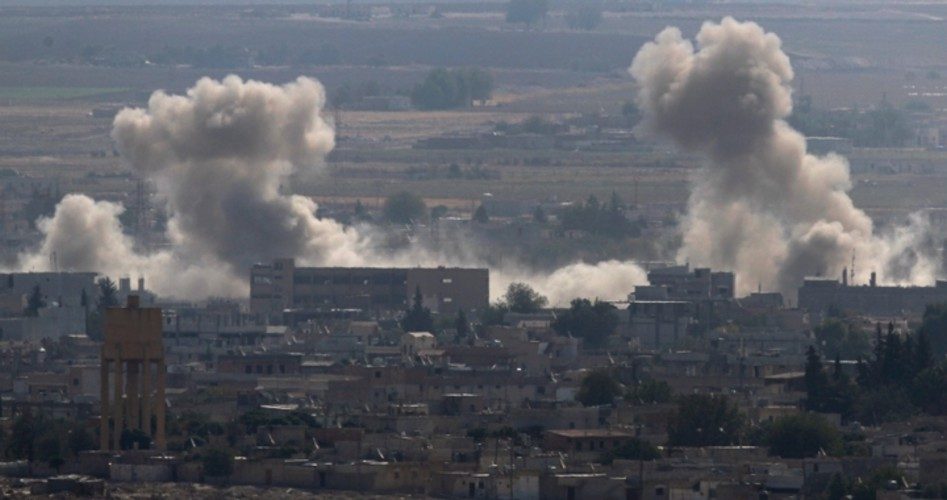
Podcast: Play in new window | Download ()
Subscribe: Android | RSS | More
On October 14, President Trump announced sanctions against Turkey aimed at restraining the Turks’ military operation against Kurdish fighters and civilians in Northern Syria.
The administration has also called on Turkey to stop the invasion and declare a ceasefire. Trump is sending Vice President Mike Pence and national security adviser Robert O’Brien to Ankara as soon as possible in an attempt to begin negotiations with the Turkish government.
AP quoted Pence as saying that Trump spoke directly to Turkey’s President Recep Erdogan, who promised not attack the border town of Kobani, which is very close to a major U.S. base from which U.S. troops will be loading equipment onto cargo planes for transport out of the country.
Turkish artillery landed close to U.S. troops near Kobani, the U.S. Defense Department said on October 11. “All U.S. troops are accounted for with no injuries,” the Pentagon said in a statement, which added that the episode occurred “in an area known by the Turks to have U.S. forces present.”
The Defense Department added that an explosion occurred just outside “the Security Mechanism Zone.” No further details were provided in the statement, but it concluded with “the U.S. demands that Turkey avoid actions that could result in immediate defensive action.”
“President Trump communicated to [Erdogan] very clearly that the United States of American wants Turkey to stop the invasion, implement an immediate ceasefire and to begin to negotiate with Kurdish forces in Syria to bring an end to the violence,” Pence said.
Bloomberg cited Trump as saying that the United States has three options in dealing with Turkey’s incursion into northern Syria: send the U.S. military back in, unleash punishing sanctions on Turkey, or mediate between the two sides.
Trump said the approximately 1,000 U.S. troops are leaving the country. They will remain in the Middle East, he said, to “monitor the situation” and to prevent a revival of ISIS.
AP cited Trump’s statement that Turkey’s invasion is “precipitating a humanitarian crisis and setting conditions for possible war crimes,” a reference to reports of Turkish-backed fighters executing Kurdish fighters on the battlefield.
In his sanctions announcement, Trump said he was halting negotiations on a $100 billion trade deal with Turkey and raising steel tariffs back up to 50 percent. Trump also imposed sanctions on three senior Turkish officials and Turkey’s defense and energy ministries.
“I am fully prepared to swiftly destroy Turkey’s economy if Turkish leaders continue down this dangerous and destructive path,” Trump said.
Back on October 6, Trump announced he was moving U.S. troops out of the way of a Turkish military incursion into the area in order to fight ISIS, while stressing that his decision was not tantamount to allowing Turkish forces to have free rein in the region.
In a tweet on the afternoon October 7, Trump wrote, “if Turkey does anything that I, in my great and unmatched wisdom, consider to be off limits, I will totally destroy and obliterate the Economy of Turkey.”
Photo: AP Images
Warren Mass has served The New American since its launch in 1985 in several capacities, including marketing, editing, and writing. Since retiring from the staff several years ago, he has been a regular contributor to the magazine. Warren writes from Texas and can be reached at [email protected].
Related articles:
Trump to Move U.S. Troops Out of Way of Turkish Incursion Into Syria
Was Chemical Attack in Syria a “False Flag” to Trigger U.S. War?
Citing Possible False Flag, Trump Launches Illegal War on Syria
MIT Report: Obama Used Bogus Intelligence to Push Syria War

